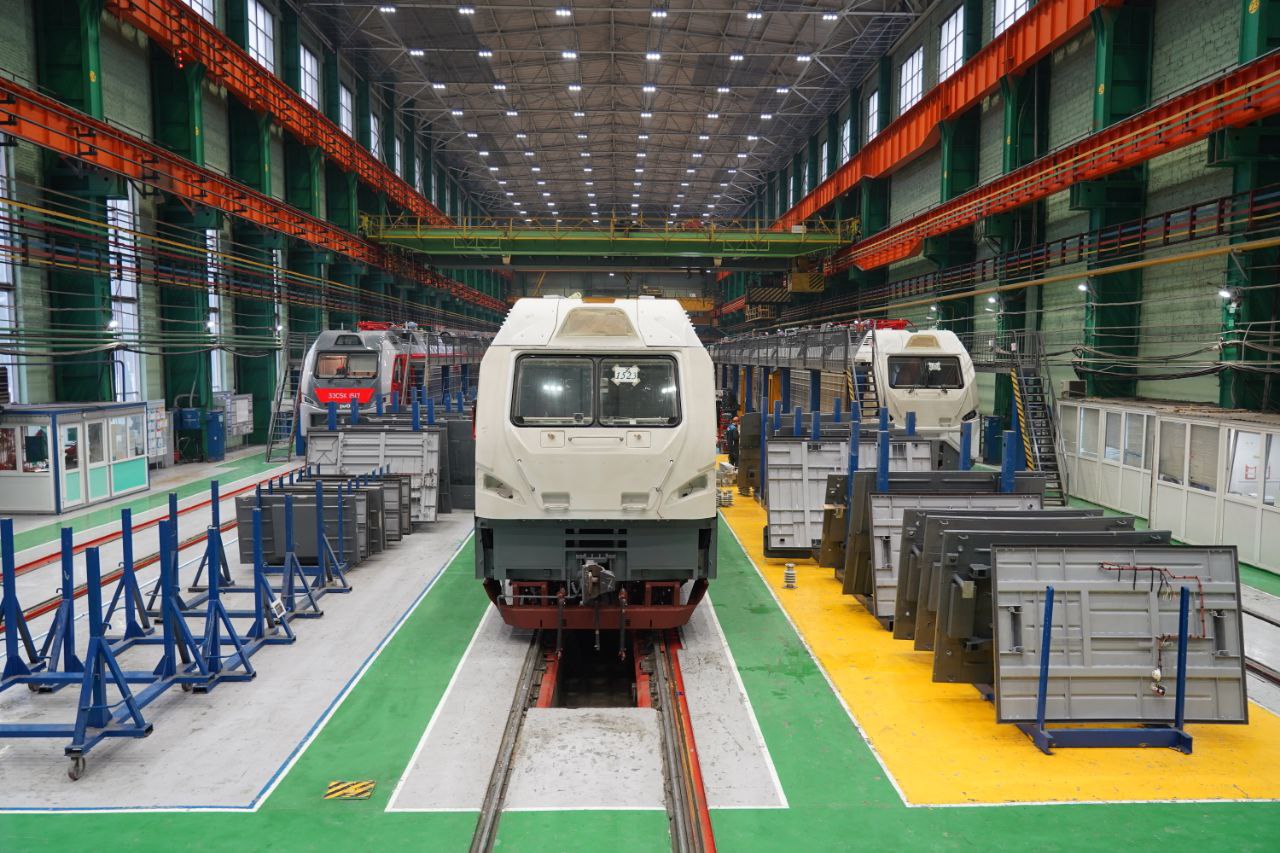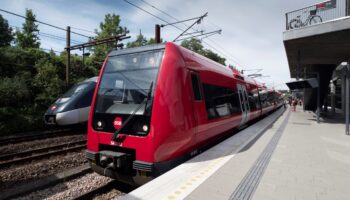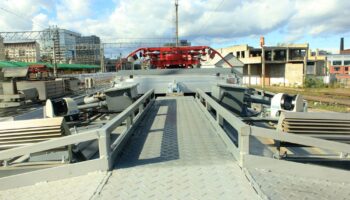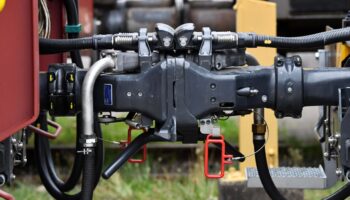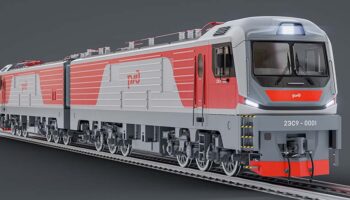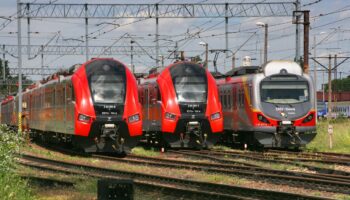Russia: In the new economic environment, Transmashholding (TMH), the country’s largest rolling stock manufacturer, is intensifying the introduction of domestic components to ensure technological independence. The priority in this direction is the quality control of procured products. Today, the company uses a wide range of tools to interact with suppliers, encouraging them to improve in the interests of both TMH and the entire industry.
Quality is the king
Since its foundation, TMH has been developing an in-house quality management system. In the previous partnership with Alstom, TMH adopted best international practices and took them into account when building its production system. Quality management systems (QMS) complying with ISO 9001 were introduced at its production sites back in the 2000s and were certified in the first half of the 2010s for compliance with the International railway industry standard, IRIS (ISO 22163).
Following the geopolitical changes of 2022, the QMSs were certified again, this time for compliance with the voluntary scheme of the Russian Union of Industries of Railway Equipment. Regular audits confirm that the QMS maturity level of TMH companies today exceeds 80%, which is significant. TMH’s commitment to an advanced quality management policy is confirmed by the fact that its steel plant in Bezhitsa was the first in Russia to introduce the Electronic Inspector, an automated system for digital registration of rolling stock components, in 2020.
Quality is also a priority when designing new rolling stock. Today, TMH is adopting the Advanced Product Quality Planning (APQP) system to ensure that its engineering centres apply the same quality policy. These efforts entail particular attention to the systematic analysis of types of failures and their consequences.
As a market leader, TMH is systematically involved in the general standardisation processes in the EAEU. Its Deputy General Director for Technical Development, Mikhail Rozhkov, chairs the Technical Committees TC 045, Railway Transport, and TC 150, Underground Railway Systems.
Since the second half of the 2010s, TMH has been actively working on the introduction of reference lines at its sites. The idea behind these lines is to align production processes to produce quality machines and components in a cycle time. Since then, 105 reference lines have been set up at 11 of the holding’s main sites. Beginning in 2017, TMH has been one of the first in the world to implement the digital transformation programme, which covers all stages of the product lifecycle. The company is constantly updating its digitalisation strategy, which is now represented by 318 digital initiatives. The strategy is mainly focused on meeting customer requirements by reducing the lifecycle costs of rolling stock and improving adaptability of its business processes to internal and external changes.
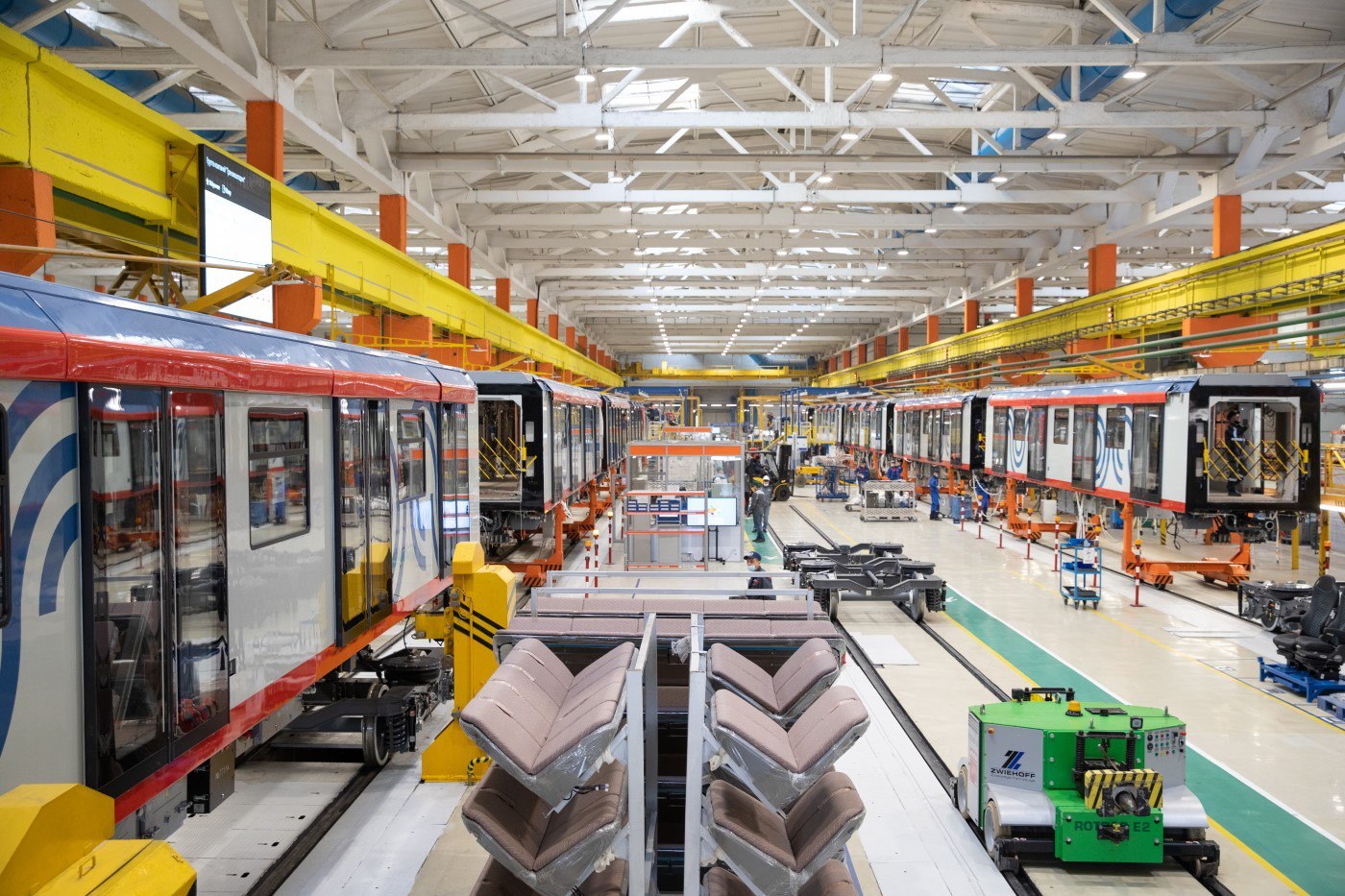 A reference car assembly line at TMH plant in Mytishi. Source: TMH
A reference car assembly line at TMH plant in Mytishi. Source: TMH
The Quick Response Quality Control (QRQC) system is designed to ensure that TMH’s production sites respond quickly to quality issues. The system was successfully tested at the Bryansk plant in 2023 and is now being implemented at the other sites.
Today, TMH has become a global railway industry company, the fifth largest in the world in terms of shipments, with more than 38,000 employees, including more than 1,300 in R&D. Its size has necessitated a more holistic and synchronised approach to production activities, with all past and current projects aimed at improving quality, increasing output efficiency, and expanding the digitalisation of business processes. “The global market is such a competitive environment that success can only be achieved if all employees at all levels of the company are constantly striving for innovation and improvement”, said Valogi Sukhinin, TMH’s Quality and Reliability Managing Director.
New systems for the years ahead
Since 2022, TMH has been implementing a single operation system, the Transmashholding Operation System, or TOS. The system embraces both TMH and its production sites, as well as its key partners, in particular the repair companies LocoTech and Zheldorremmash. This business model is about achieving strategic goals through the application of continuous improvement tools and principles by each and every employee.
TOS is based on customer focus, value creation, a constant commitment to excellence through continuous improvement, and development of a friendly culture that motivates people to increase productivity and improve quality. “The operation system is the foundation for future improvements. Change is only possible when leaders understand the principles of organisational effectiveness and embed them in the culture of the organisation. Involving the whole organisation, every team member, is a prerequisite for real and sustainable improvement”, says TMH.
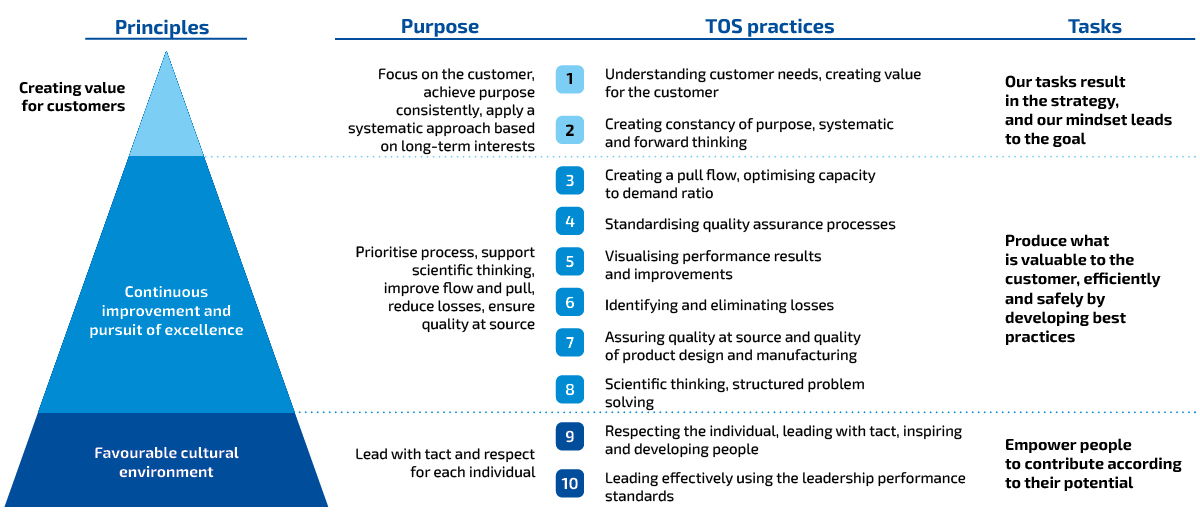 TMH operation system (Transmashholding Operation System, TOS, enlarge). Source: TMH
TMH operation system (Transmashholding Operation System, TOS, enlarge). Source: TMH
According to Valogi Sukhinin, the reduction of losses through the use of TOS will allow performance to be increased by 3–5%. These losses are traditionally caused by problematic factory logistics, excessive stocks of raw materials and components, inefficient plant layout, intermittent workflow, over-processing of items, and corrective actions. The increase in performance looks relatively small because TMH has been implementing the lean culture and digitalisation of production for a long time, so much has already been achieved.
While TMH had already applied quality control to purchased products, 2022 and 2023 only emphasised the need for its suppliers to implement its quality management principles on a larger scale. According to the company, 90% of the components used in its rolling stock are domestic, and their non-compliance with standards or requirements is mostly due to disruptions in technological processes and design weaknesses. Add to this the fact that raw materials and components account for 75% of the cost of TMH products, and the importance of suppliers adopting TMH’s quality management principles becomes even more apparent. The supplier base has recently changed and now includes more than 5,000 suppliers, 72 of which have joined in the last two years. TMH has had to find new suppliers for a significant proportion of components, and some components are sourced from suppliers, which have just started domestic production from scratch.
Methodical approach
Today, TMH is developing its own supplier development methodology based on experience and international best practices. Being comprehensive, supplier development involves interaction with suppliers throughout the entire lifecycle of rolling stock, from their evaluation and selection to ensuring the desired level of compliance with TMH’s requirements for the products or services supplied. As the lifecycle of the products manufactured in its sites extends over decades, TMH seeks long-term, mutually beneficial relationships with its partners.
Each stage of the chosen methodology is designed to ensure that the company’s interests are respected and supplier development is encouraged. The first stage is the quality accreditation of potential suppliers through a comprehensive and multi-stage assessment. The accreditation teams are made up of technical specialists and staff from the QMS and economic security department. They divide suppliers into groups, paying particular attention to those offering products that affect the quality, reliability, and safety of rolling stock. “The accreditation process allows us to identify and eliminate suppliers that could undermine the quality of components at an early stage”, says Sukhinin.
During the accreditation process, all submitted documentation is thoroughly reviewed and potential risks are assessed. If necessary, the accreditation team conducts an audit of a potential partner, examining the capabilities of its production systems and technological processes, and checking the availability of the necessary production equipment. If the supplier produces unique and critical components for TMH rolling stock, it is immediately included in the supplier development programme and, to reduce risk, the programme curriculum is drawn up before the contract is signed.
 TMH accreditation process for potential suppliers (enlarge)
TMH accreditation process for potential suppliers (enlarge)
A supplier that has demonstrated its ability to meet TMH’s accreditation requirements is added to a list of accredited companies. This year, the holding will fully implement its automated accreditation system with personal user accounts and unified data entry and processing modules based on 1C: Accreditation, an automated record system.
The next stage is for the supplier to sign a contract that ensures compliance with TMH requirements and specifies the key criteria for evaluating the supplier’s performance. These include the timeliness and completeness of deliveries, compliance with quality requirements, and the ability to establish a system of effective communication with TMH. Once the contract is signed and products are shipped to TMH’s production sites, the supplier becomes an active supplier.
When the cooperation begins, the next stage of the methodology is implemented, product verification, where the quality of the products supplied is checked for compliance with the requirements. Components found to be non-compliant are not used in the production of rolling stock. TMH is now enhancing this stage by working on the automation of the lists of verified products.
At the next stage, consistent interaction with suppliers is ensured by a quarterly assessment method, Quality Cost Delivery Technics (QCDT), developed by TMH’s Inventory and Logistics Directorate. Designated employees from TMH’s production sites assess supplier performance using a record system, Astrea, which assigns a final score to each indicator. If a supplier is blacklisted at this stage, purchases from that supplier are prohibited. These quarterly QCDT scores are used as one of the data sources for the annual comprehensive analysis of supplier performance.
If the quality of delivered products is compromised later, TMH uses the Eight Disciplines, 8D, a common problem-solving tool, to find the root causes of problems and prevent them from recurring. “It is unacceptable to pass a defect down the production chain. This prohibition is crucial for the effective functioning of the organisation for many reasons”, notes Valogi Sukhinin. Another area in which 8D is used is training personnel to work in teams.
 Stages of problem solving when using the Eight Disciplines (8D, enlarge)
Stages of problem solving when using the Eight Disciplines (8D, enlarge)
There are development programmes for problem suppliers. These programmes provide a series of actions to help such a supplier achieve the desired level of compliance with TMH’s requirements and assess the need for the next audit. The clarity and ease of use of specially developed quality dashboards for in-depth analysis allow TMH to quickly identify the worst performing suppliers and develop corrective actions for them. The supplier exits the programme when it has been successfully completed, i.e. when all corrective actions have been properly implemented and the next audit has shown a high score against THM’s internal standards.
System support
TMH helps its suppliers to develop in several areas and does not cease its efforts to improve the efficiency of the tools it uses for this purpose. For example, one of the most pressing issues for both TMH and component manufacturers is personnel training. “What we need is not just an engineer or a design engineer. It is a design engineer, technologist, and CNC machine setter all in one. We are looking for them, but neither the universities train them, nor the educational standards and programmes are close to the rapidly changing business environment”, said Alexander Morozov, First Deputy General Director of TMH, at Russia Expo in January. The company is technically creating an educational conveyor system focused on in-house standards. One of its pillars is the TMH Corporate University, which received an educational licence in 2023.
As Natalia Shishlakova, Deputy General Director for Corporate Development and Project Management and Member of the Management Board, told Kommersant in an interview last November, the TMH Corporate University elaborates licensed industry programmes for specialists and workers according to uniform standards. “This is an opportunity to develop skills, a quick way [to develop them] in a certain industrial sector”, she noted. The university already offers more than 200 programmes for training in blue-collar trades and project management as well as leadership development. All these programmes are available to all TMH companies.
The second important area is assistance in raising funds for projects that facilitate the self-reliance in component production. In 2023, the Russian government identified the railway industry as one of the focal areas for important technological projects, and orders placed by TMH with its suppliers and subsidiaries play a strategic role in this process. The future supplies of components for the rolling stock are ensured by loans assisted by the Industrial Development Fund to subsidiary companies (Bezhitskaya Steel Plant, TMH-Elektrotekh, etc.) and third-party suppliers (Key Systems and Components Group, Transpnevmatika, Petrozavodskmash, etc.) on favourable terms.
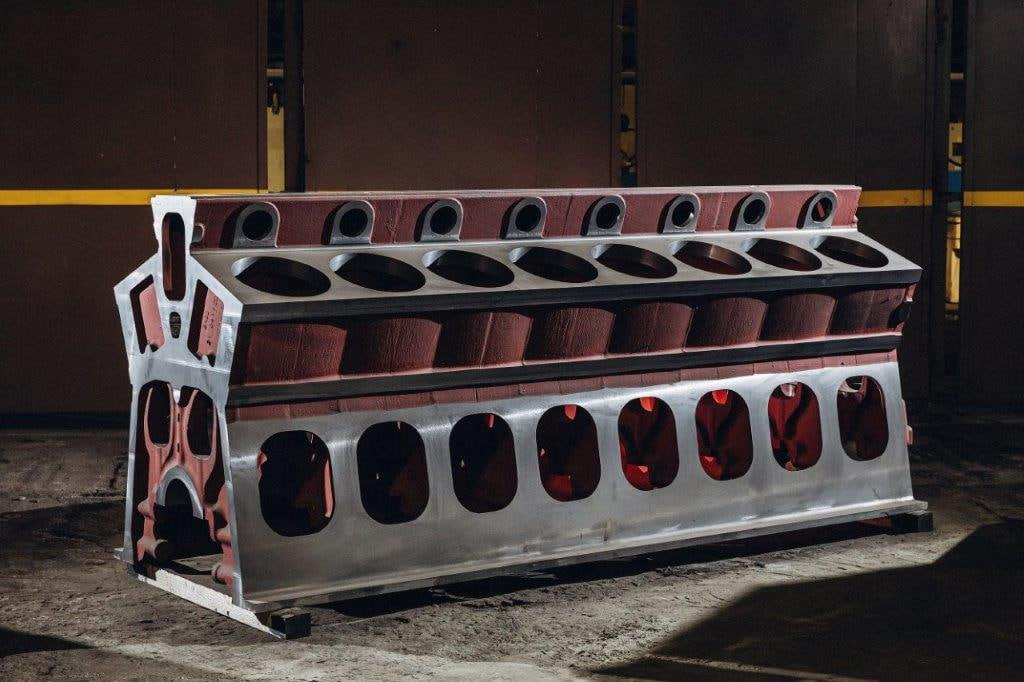 Cast iron block for diesel engine from Petrozavodskmash. Source: Petrozavodskmash
Cast iron block for diesel engine from Petrozavodskmash. Source: Petrozavodskmash
At the same time, TMH is actively developing its own financial tool, a digital payment platform called Lighthouse. Originally set up for factoring services, it later evolved into a loan marketplace, and today many banks compete for the opportunity to finance TMH’s activities and, as a matter of course, to offer working capital loans on more attractive terms. Suppliers have access to Lighthouse. “By joining the platform, a supplier entering into a contract with TMH automatically receives financing from a bank or factoring company”, as Kirill Lipa, TMH General Director, told ROLLINGSTOCK last summer.
As for key suppliers, TMH is considering their involvement in the deployment of TOS. Let’s take the example of the largest manufacturer of rolling stock components and TMH’s main supplier, Key Systems and Components Group, which accounts for 30% of the company’s purchases. TOS principles are applied in its production. Maksim Volodkin, Director of Production System Development and Quality, tells Key Component magazine, that the group has been applying the TMH standards since 2021, and the relevant TOS deployment programme is being implemented at its three sites, which are involved in the production of electrical equipment, climate control equipment, and interior and exterior components. The latest audit, carried out in November 2023, showed that all production sites have made significant progress with the help of the TOS principles. “Today I can say that we work with a single logic and with a common methodology, which allow us to solve all issues much faster and more efficiently”, says Volodkin.
 TOS audit results at some sites of Key Systems and Components Group. Source: TMH
TOS audit results at some sites of Key Systems and Components Group. Source: TMH
TMH also pays much attention to other incentives for suppliers, such as the awarding of bonuses and the selection of the best supplier at regular joint Quality Days. These incentives contribute to cooperation and at the same time encourage other suppliers to reach the same level of development as their colleagues and competitors. In an effort to improve quality and escalate sovereignty, TMH is ready to increase the volume of purchases and sign long-term contracts.
All these mechanisms create an atmosphere of productivity and trust between TMH and its suppliers. The resulting relationships contribute to the achievement of TOS’s key objective of creating value for the operators, which order rolling stock, and their customers, passengers and shippers. In an ecosystem based on mutual interest in improvement, the Russian railway industry becomes more resilient to external risks for many years to come, while securing its potential for international expansion.
***

TMH is the number one manufacturer of railway and light rail transport in Russia and the CIS, and the number five worldwide. It offers a wide range of products and services, from the design and development of rolling stock to modernisation, life-cycle maintenance, and digital traffic control systems. The holding embraces production and assembly sites in Russia and other countries and works in more than 30 countries. Website: tmh.global
Advertising. Account: JSC Transmashholding, Taxpayer Identification Number (INN) 7723199790. Erid: 2SDnjcxewi8





